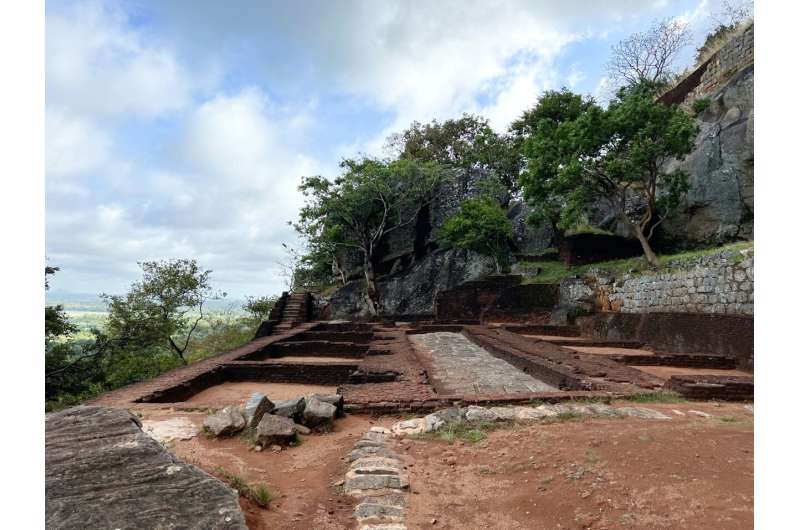Ethical ancient DNA research must involve descendant communities, say researchers
The analysis of ancient DNA allows scientists to trace human evolution and make important discoveries about modern populations. The data revealed by ancient DNA sampling can be valuable, but the human remains that carry this ancient DNA are often those of the ancestors of modern Indigenous groups, and some communities have expressed concerns about the ethics of sampling by outside parties. A group of scientists publishing in the journal Human Genetics and Genomics Advances on January 11 make the case for involvement of descendant communities in all aspects of the research process.
“Allowing descendant communities to guide ancient DNA research is critical because most risks and benefits resulting from research on their ancestors are realized by descendant communities—not researchers,” say the authors, led by Emma Kowal, an anthropologist at Deakin University. “Without this guidance from descendant communities, ancient DNA research can be an extractive and exploitative science that propagates the consequences of colonial practices.”
The authors advocate for rigorous involvement with existing groups, despite logistical difficulties. “Communities should be equal partners with scientists in the research process. It is true that identifying which communities should be recognized as research partners can be challenging, even in countries such as the United States where there is longstanding recognition of hundreds of tribes,” say the authors. “However, these challenges are not a reason to exclude groups that may have rights and interests in ancient DNA research.”
In their commentary, the authors conclude that the ability to adhere to stringent guidelines for community involvement should be part of the decision to move forward with research or not. “If a research team does not have the capacity to meaningfully engage descendant communities, questions must be asked about the value and benefit of their research,” they write.
More information:
Emma Kowal, Community partnerships are fundamental to ethical ancient DNA research, Human Genetics and Genomics Advances (2023). DOI: 10.1016/j.xhgg.2022.100161. www.cell.com/hgg-advances/full … 2666-2477(22)00078-1
Citation:
Ethical ancient DNA research must involve descendant communities, say researchers (2023, January 11)
retrieved 11 January 2023
from https://phys.org/news/2023-01-ethical-ancient-dna-involve-descendant.html
This document is subject to copyright. Apart from any fair dealing for the purpose of private study or research, no
part may be reproduced without the written permission. The content is provided for information purposes only.

The analysis of ancient DNA allows scientists to trace human evolution and make important discoveries about modern populations. The data revealed by ancient DNA sampling can be valuable, but the human remains that carry this ancient DNA are often those of the ancestors of modern Indigenous groups, and some communities have expressed concerns about the ethics of sampling by outside parties. A group of scientists publishing in the journal Human Genetics and Genomics Advances on January 11 make the case for involvement of descendant communities in all aspects of the research process.
“Allowing descendant communities to guide ancient DNA research is critical because most risks and benefits resulting from research on their ancestors are realized by descendant communities—not researchers,” say the authors, led by Emma Kowal, an anthropologist at Deakin University. “Without this guidance from descendant communities, ancient DNA research can be an extractive and exploitative science that propagates the consequences of colonial practices.”
The authors advocate for rigorous involvement with existing groups, despite logistical difficulties. “Communities should be equal partners with scientists in the research process. It is true that identifying which communities should be recognized as research partners can be challenging, even in countries such as the United States where there is longstanding recognition of hundreds of tribes,” say the authors. “However, these challenges are not a reason to exclude groups that may have rights and interests in ancient DNA research.”
In their commentary, the authors conclude that the ability to adhere to stringent guidelines for community involvement should be part of the decision to move forward with research or not. “If a research team does not have the capacity to meaningfully engage descendant communities, questions must be asked about the value and benefit of their research,” they write.
More information:
Emma Kowal, Community partnerships are fundamental to ethical ancient DNA research, Human Genetics and Genomics Advances (2023). DOI: 10.1016/j.xhgg.2022.100161. www.cell.com/hgg-advances/full … 2666-2477(22)00078-1
Citation:
Ethical ancient DNA research must involve descendant communities, say researchers (2023, January 11)
retrieved 11 January 2023
from https://phys.org/news/2023-01-ethical-ancient-dna-involve-descendant.html
This document is subject to copyright. Apart from any fair dealing for the purpose of private study or research, no
part may be reproduced without the written permission. The content is provided for information purposes only.
